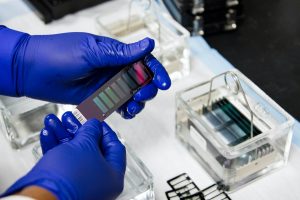What happens when a drug testing collection facility or lab makes a mistake in conducting required drug testing? Well, in certain limited circumstances the mistake could afford a defense to regulatory actions against the employee based upon what would otherwise be a positive test.
However, in most other circumstances the employee would suffer the regulatory consequences of a positive test (e.g. revocation of certificates, referral to a substance abuse professional (“SAP”), rehabilitation, etc.). And the employee could lose his or her job.
But what if the employee knows that the positive test was incorrect (he or she did not use the substance for which the employee tested positive)? Unfortunately, from a regulatory perspective the employee has little recourse. However, at least in Texas, the employee may be able to sue the collection facility and/or testing lab for any negligence that resulted in the incorrect, positive test result.
The Court of Appeals Case
A recent case in the Texas Court of Appeals addressed this situation. In Mendez v. Hous. Harris Area Safety Council, Inc., the employee submitted to a random drug test that returned a positive test result for cocaine. Disagreeing with that result, the employee submitted to two additional tests which were both negative for cocaine.
The employee was initially terminated, but after receiving the negative test results the employer rescinded the termination. However, the employee was still required to meet with the SAP and comply with any required rehabilitation before he could return to work.
 Believing that the original collection facility and testing lab had made mistakes causing the incorrect positive result, the employee sued both. The trial court dismissed the employee’s negligence claims holding that neither the collection facility nor the testing lab owed the employee a duty of care. In the absence of a duty of care, neither could be liable for negligence.
Believing that the original collection facility and testing lab had made mistakes causing the incorrect positive result, the employee sued both. The trial court dismissed the employee’s negligence claims holding that neither the collection facility nor the testing lab owed the employee a duty of care. In the absence of a duty of care, neither could be liable for negligence.
The Texas Court of Appeals disagreed. It held that:
when an individual is required, as a condition of employment, to submit to drug testing, the law recognizes a duty to use reasonable care in collecting and processing biological samples between third-party collection and testing agencies and the employees they test.


